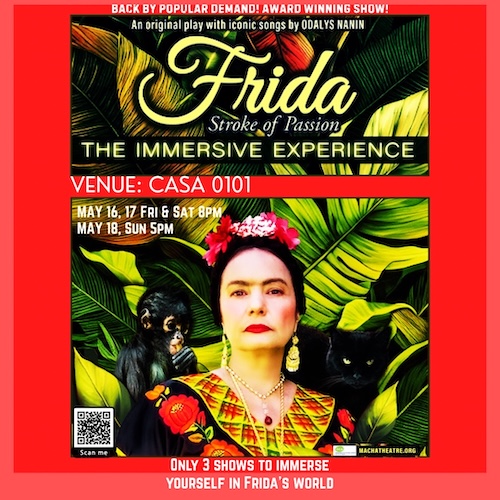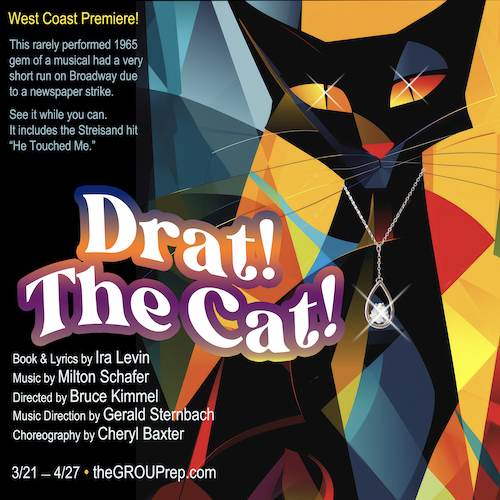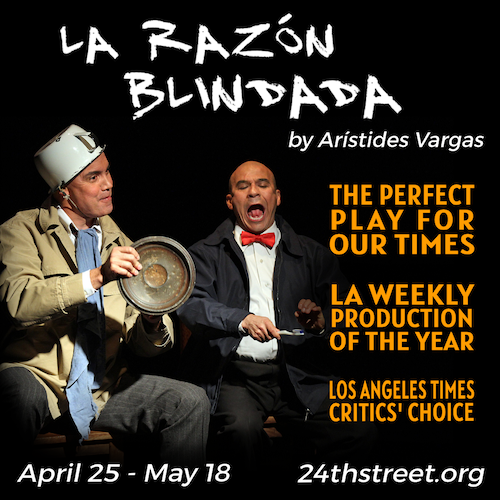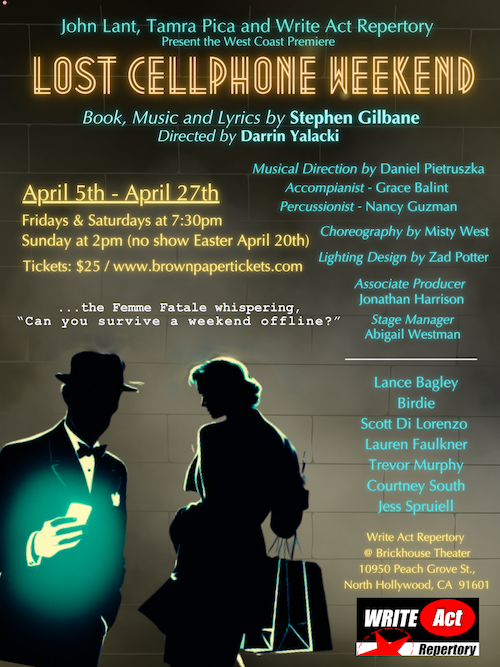Animal Farm
Reviewed by Deborah Klugman
A Noise Within
Thru October 2
RECOMMENDED
George Orwell began writing Animal Farm in the waning months of 1943. The book was conceived in response to the evils of Stalinist Russia and the disturbing tendency of many left-leaning British intellectuals to excuse the regime’s murderous excesses and cruelties. Never an officially declared socialist or communist, Orwell had been a member of Britain’s Independent Labour Party, which strove to represent the interests of the working class; in the 1930s, he also enlisted in the Popular Front in its fight against Franco. From the beginning his writings reflected empathy with the downtrodden and oppressed and, as time went on, with identifying and calling out totalitarian entities that utilized propaganda to eviscerate human rights. “Every line of serious work I have written since 1936 has been written, directly or indirectly, against totalitarianism and for democratic socialism,” he stated in his 1946 essay, Why I Write. Orwell went on to see the publication of 1984, his iconic dystopian novel, in 1949 — a year before his tragically premature death from tuberculosis in 1950.
In 1984 Peter Hall and Adrian Mitchell’s musical adaptation premiered. The original production listed a cast of 18 actors and was staged with the ensemble on all fours. In her impressive rendering at A Noise Within, director Julia Rodriguez-Elliott has pared that number to 10 upright performers, some of whom play multiple roles, and dispensed with the script’s single narrator, instead distributing the text among the various characters. That choice proves a bit confusing at first (it was for me, at least), but the haze clears after a while as the characters’ personas evolve and the story builds to catharsis.
For those who may not have read it in high school (or beyond): Animal Farm is about a group of animals who are exploited and oppressed by the farmer who owns them, Mr. Jones (Bert Emmett), and are driven to revolt one day after Jones drinks too heavily and forgets to feed them. Their uprising is led by two pigs, Snowball (Stanley Andrew Jackson III) and Napoleon (Rafael Goldstein), who start out as friends and comrades. After Jones is successfully overthrown, the animals take over the farm, with an eye to establishing a utopian and democratic community. Among the 7 principles espoused are that animals should never kill another animal or behave in any way like men. But reality intrudes soon enough, and the pressures of survival, in tandem with the temptation of one character to acquire power, despoil the dream and turn it into a nightmare.
Just as Animal Farm the book was written to disturb and provoke (rather than primarily to entertain), Animal Farm the musical is a show you heed and respect while perhaps finding its themes too discomfiting to actually enjoy. Orwell’s perspective of humankind — including the inability of many people to think for themselves, thus rendering them susceptible to propaganda and manipulation — is grim indeed. You don’t have to be a scholar to shudder at this allegory’s embedded truth or perceive its all-too-real application to the current events on our public stage.
Regardless, the production itself is a class act, beginning with an outstanding ensemble: actors laboring in drab tatters (costume design, Angela Balogh Calin) and from under a potpourri of prosthetic snouts and ears and manes (wig & make-up design Tony Valdés) to relay a sinister tale. The work is physical, dynamic and committed. Ken Booth’s lighting cannily shifts from pale yellow tints on designer Calin’s appropriately gloomy set to more reddish hues as hints of carnage emerge. Live music (woodwinds David Catalan, trumpet and flugelhorn Nathan Johnson) under the directorship of keyboardist Rod Bagheri invigorates the action on stage, while Kate Wecker’ sound design helps conjure a sense of morphing unease throughout.
While individual performances tend to be obviated by the collective, moments stand out. Jackson is articulate and relatable as the idealistic Snowball (Orwell’s representative of Trotsky) before he’s driven from the group by the jealous power-hungry Napoleon (Stalin). Geoff Elliott keeps Orwell’s pivotal theme on track in his rendering of the stalwart not-too-bright horse Boxer, who dumbly echoes the fascist directives handed down by Napoleon, no matter how much they exploit him personally (rather like a 1940s British version of a brainless MAGA recruit). Deborah Strang brings her customarily adroit nuance to the querying Clover, her face reflecting bewilderment as evil advances. And Trisha Miller exponentially expands her presence as her character, Squealer, evolves from being one animal among a group into a ruthless uncompromising spokesperson for a totalitarian state.
In the end, it’s the direction by Rodriguez-Elliott that impresses most. The harmony in the flow of the action could only be achieved with a strong, sure hand at the helm. This musical adaptation is a timely scary work, and its current production has been brought to the stage with acumen, insight and skill.
A Noise Within, 3352 Foothill Blvd., Pasadena; Fri.-Sat., 8 pm. Sat.-Sun., 2 pm; Thurs., Sept. 29, 7:30 pm; 10 student matinees at 10:30 a.m.: Tues., Sept. 6; Wed., Sept. 7; Tues., Sept. 13; Wed., Sept. 14; Thurs., Sept. 15; Tues., Sept. 20; Wed., Sept. 21; Thurs., Sept. 22; Tues., Sept. 27; and Wed., Sept. 28; thru Oct. 2. www.anoisewithin.org Running time: two hours and 5 minutes with an intermission.














